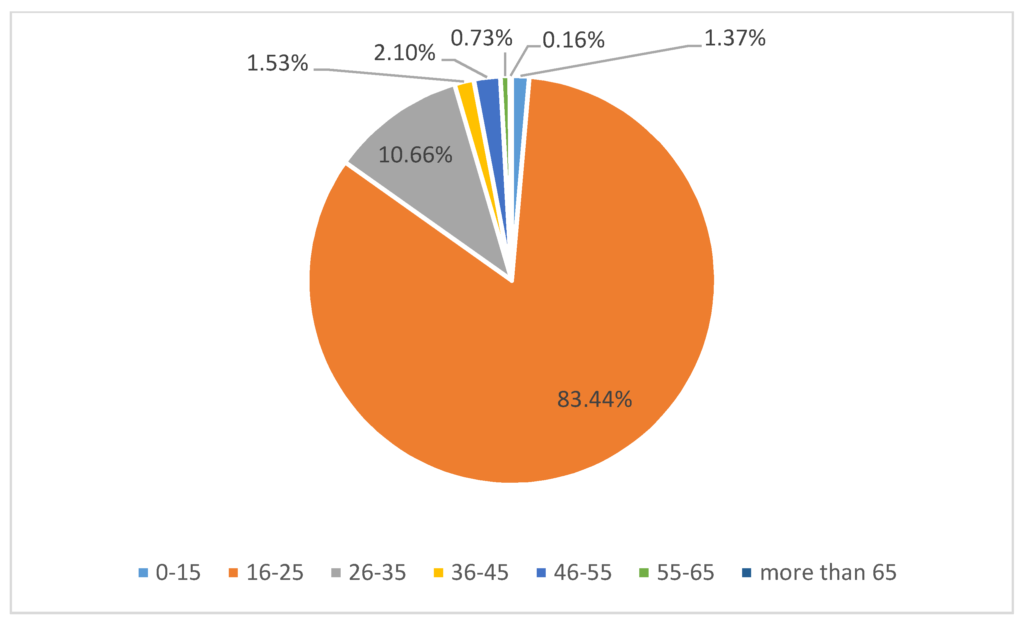In the quest for a more sustainable fashion industry, local and small-scale fashion brands are playing a crucial role. These brands, often operating on a smaller scale compared to their larger counterparts, bring a unique approach to sustainability through their practices, values, and community impact. Here’s how local and small-scale fashion brands are driving the sustainability movement and why their role is essential in reshaping the fashion landscape.

1. Emphasis on Ethical Production
Transparency and Accountability
Local and small-scale fashion brands often emphasize transparency in their production processes. They tend to have more control over their supply chains, allowing them to ensure ethical practices from sourcing to manufacturing. By maintaining close relationships with suppliers and manufacturers, these brands can better monitor labor conditions, ensure fair wages, and adhere to environmentally friendly practices.
Low-Volume Production
Unlike large fashion corporations, local and small-scale brands typically engage in low-volume production. This approach minimizes overproduction and reduces waste, as these brands often produce items based on actual demand rather than forecasting trends. Low-volume production also allows for greater attention to detail and higher quality craftsmanship.
2. Use of Sustainable Materials
Eco-Friendly Fabrics
Local and small-scale fashion brands are increasingly incorporating sustainable materials into their collections. These materials include organic cotton, hemp, recycled polyester, and innovative fabrics made from plant-based or waste-derived sources. By prioritizing eco-friendly fabrics, these brands reduce their environmental footprint and support the development of sustainable textile alternatives.
Support for Local Resources
Many small-scale brands source their materials locally, reducing the environmental impact associated with long-distance transportation. This local sourcing not only supports regional economies but also helps lower the carbon footprint of their products. Additionally, local materials often have a smaller environmental impact due to reduced processing and transportation.
3. Focus on Craftsmanship and Quality
Handmade and Artisan Techniques
A hallmark of local and small-scale fashion brands is their commitment to handmade and artisan techniques. These brands often work with skilled artisans to create high-quality, durable garments. Emphasizing craftsmanship ensures that products are built to last, reducing the need for frequent replacements and supporting a more sustainable approach to fashion.
Timeless Designs
Small-scale brands frequently focus on timeless designs that transcend seasonal trends. By creating versatile, classic pieces, these brands encourage consumers to invest in garments that will remain stylish for years. This approach reduces the pressure to constantly update wardrobes and supports a more sustainable fashion cycle.
4. Promotion of Circular Fashion
Repair and Upcycling
Local and small-scale brands often promote repair and upcycling as part of their sustainability efforts. Some offer repair services or create programs that encourage customers to bring back old garments for refurbishment. Additionally, many brands incorporate upcycled materials into their collections, giving new life to pre-loved items and reducing textile waste.

Recycling Initiatives
These brands are also leading the way in implementing recycling initiatives. For instance, they may use recycled fabrics in their products or establish take-back programs that ensure old garments are properly recycled rather than ending up in landfills.
5. Community Engagement and Education
Local Engagement
Local and small-scale fashion brands are deeply embedded in their communities. They often engage in community events, workshops, and collaborations that raise awareness about sustainability and ethical fashion. By fostering a dialogue with their customers and local stakeholders, these brands help educate consumers about the impact of their fashion choices.
Support for Emerging Designers
Many small-scale brands provide platforms for emerging designers who prioritize sustainability. By supporting these designers, they help cultivate a new generation of fashion professionals committed to ethical practices, thus contributing to the broader movement towards a more sustainable industry.
6. Challenges and Opportunities
Resource Limitations
Despite their positive impact, local and small-scale fashion brands often face resource limitations. Limited budgets and smaller production scales can make it challenging to compete with larger brands in terms of price and market reach. However, their commitment to sustainability and ethical practices often resonates with consumers who are willing to invest in more responsible fashion choices.
Innovation and Growth
The innovative approaches of local and small-scale brands provide valuable insights and models for the broader fashion industry. Their ability to adapt and implement sustainable practices offers opportunities for growth and expansion within the ethical fashion sector.
Conclusion
Local and small-scale fashion brands are pivotal in promoting sustainability within the fashion industry. Through their emphasis on ethical production, use of sustainable materials, focus on craftsmanship, support for circular fashion, and community engagement, these brands are driving positive change and offering a viable alternative to traditional fashion practices. By supporting local and small-scale brands, consumers not only make more responsible fashion choices but also contribute to a broader movement towards a more sustainable and ethical fashion industry.


